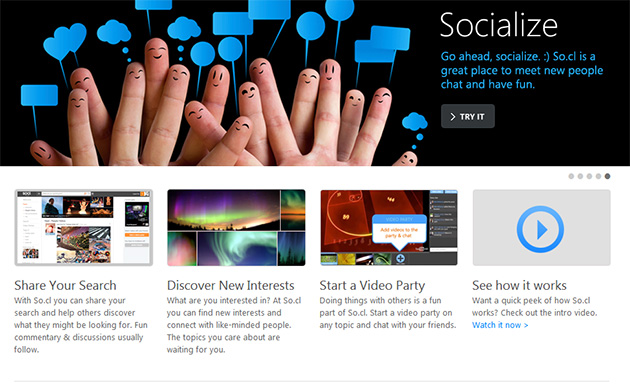 Sick of reading social links from your friends? Try your enemies. A team of journalists, developers, and digital strategists are working to secure funding for a social sharing tool that would match readers to news stories usually read by people completely different from them, instead of reading what they term “news stories endlessly aggregated across their own narrow social networks.” DifferentFeather would use social networks like Facebook and Instapaper, as well as linking data between political bloggers, to find content most alien – ideologically, demographically, and geographically – to a reader’s normal habits. Existing social tools for reading and sharing, the project summary notes, try to match users with things they would usually read. Occasionally, there emerge tools explicitly designed to help readers keep blinders on themselves: The possibly-facetious browser extension Murdoch Block, for example, censors all content originating from News Corp, including Fox News and the Wall Street Journal. “The internet can exacerbate our natural tendency towards homophily – birds of a feather flocking together – or it can mediate that same impulse,” reads the project page. “Aside from OkCupid’s ‘enemy’ rating, there are very few online opportunities to be presented with people who oppose rather than mirror your preferences.” The project will start with a single measure of differentiation – which the developers think will work well during the presidential election – but plans to branch into a more complex model. “Given the election season, we’ll do an initial demo doing a simple left-right political axis to start categorizing sources,” the team wrote. “The solution for surfacing these opposites is technically challenging and would include both link analysis and data from a very brief user survey. However, we expect that this project will be iterative as we move to greater sophistication about notions of difference.” The developers are considering two roads to commoditization based on selling analytic data, or offering multi-tiered functionality. The project will be open-source, and is currently competing for $120,000 from the Knight News Challenge, a funding contest for innovative journalism projects by the Knight Foundation.
Sick of reading social links from your friends? Try your enemies. A team of journalists, developers, and digital strategists are working to secure funding for a social sharing tool that would match readers to news stories usually read by people completely different from them, instead of reading what they term “news stories endlessly aggregated across their own narrow social networks.” DifferentFeather would use social networks like Facebook and Instapaper, as well as linking data between political bloggers, to find content most alien – ideologically, demographically, and geographically – to a reader’s normal habits. Existing social tools for reading and sharing, the project summary notes, try to match users with things they would usually read. Occasionally, there emerge tools explicitly designed to help readers keep blinders on themselves: The possibly-facetious browser extension Murdoch Block, for example, censors all content originating from News Corp, including Fox News and the Wall Street Journal. “The internet can exacerbate our natural tendency towards homophily – birds of a feather flocking together – or it can mediate that same impulse,” reads the project page. “Aside from OkCupid’s ‘enemy’ rating, there are very few online opportunities to be presented with people who oppose rather than mirror your preferences.” The project will start with a single measure of differentiation – which the developers think will work well during the presidential election – but plans to branch into a more complex model. “Given the election season, we’ll do an initial demo doing a simple left-right political axis to start categorizing sources,” the team wrote. “The solution for surfacing these opposites is technically challenging and would include both link analysis and data from a very brief user survey. However, we expect that this project will be iterative as we move to greater sophistication about notions of difference.” The developers are considering two roads to commoditization based on selling analytic data, or offering multi-tiered functionality. The project will be open-source, and is currently competing for $120,000 from the Knight News Challenge, a funding contest for innovative journalism projects by the Knight Foundation.
Image: Striatic CC-BY







